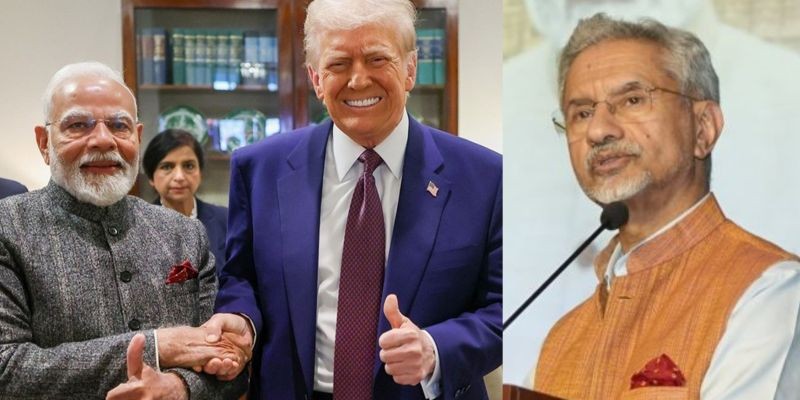Balochistan: Retaliatory Violence

Research Associate, Institute for Conflict Management
On October 14, 2023, at least six non-local labourers, working on a private site, were killed, and another two were injured, by Baloch militants in the Satellite Town area of Turbat city in the Kech District of Balochistan. The Baloch Liberation Army (BLA) claimed that the operation was based on ‘intelligence reports’ from BLA’s ‘intelligence wing’ suggesting presence of informers and agents of the Pakistani military, operating from a residential compound in Turbat city. These individuals, the BLA statement claimed, were seen frequenting Pakistani military camps and purportedly using vehicles associated with the military. Beyond their alleged ties to the Pakistani military, the BLA statement claimed that these individuals acted as informers and facilitated safe houses for what they describe as “Pakistani death squads.”
The BLA statement also urged local contractors, hoteliers, and landlords in the region to refrain from aiding or providing facilities to individuals linked with the Pakistani military, cautioning that those found doing so would be ‘held accountable’. Following the raid, the statement claimed further, the injured and the bodies of the deceased were transported to Multan, Punjab, via a military helicopter.
This attack came against the backdrop of the Army’s undeclared ongoing operations in several parts of Balochsitan. On October 12, 2023, the Army, reportedly backed by helicopter gunships, launched a large-scale military operation in the Margat area of Bolan District and the Zarghoon area of Quetta in Balochistan. Helicopters were spotted shelling various area, while ground forces blocked different places. There are no clear reports regarding casualties.
Earlier, on October 9, 2023, Security Forces (SFs) launched a military operation, firing multiple rockets and opening indiscriminate fire on civilian areas, including Raees Tokh and Shakh in the Sui town of Dera Bugti District. Once again, there have been no clear reports regarding casualties.
These recent operations are part of an ongoing campaign by the Pakistan Army, which has been conducting such operations in Balochistan since long, from time to time. These operations have resulted in innumerable human rights violations. On July 7, 2023, The Balochistan Post revealed that in the first half of 2023, the Army conducted 149 raids, 113 blockades, and 99 military 42 different areas within Balochistan, including Kech (40), Bolan (36,) Panjgur (33), Kharan (30), Kalat (20), Quetta (17), Tump (14), Nushki and Mastung (11 each).
In retaliation to the recent as well as earlier operations, Baloch insurgent groups have targeted Army personnel, as well and non-locals, whom they thought to be Army collaborators. Some of the significant attacks on non-locals in the current year included:
August 7: Militants shot dead a non-local at Johan Cross near the Mangochar area of Kalat District. BLA took responsibility for the killing and alleged that the man was working as a spy for the Pakistan Army.
July 27: Militants shot dead Ghulam Yaseen, hailing from Punjab, near Gumshaad Hotel in the Turbat town of Kech District, alleging that he was an Army agent. While claiming responsibility for the killing, BLA's 'spokesperson' Jeeyand Baloch claimed that Yaseen was working undercover, for the Pakistani forces. BLA issued a warning to residential hotel owners in Turbat and the surrounding areas, cautioning them against providing accommodation to such dubious individuals.
July 3: BLA cadres abducted a resident of the Punjab province from a picnic spot in the Shaban area on the outskirts of Quetta, the provincial capital of Balochistan. BLA 'spokesperson' Jeeyand Baloch disclosed that BLA cadres raided the area and 'arrested' a suspicious person, hailing from Multan in Punjab. The fate of the abducted person remains unknown.
According to partial data compiled by the South Asia Terrorism Portal (SATP), a total of 254 ‘non-locals’ have been killed in Balochistan since August 26, 2006, (data till October 15, 2023). Of these, 198 were Punjabis. Other non-native also fell to the ethnic collateral damage, including 37 were Sindhis. The ethnic identity of the remaining 19 was unspecified.
Significantly, most of the Punjabi settler killings were recorded in South Balochistan, which accounts for 167 of the total of 198 killings (principally in Bolan, Kech, Gwadar, Panjgur, Khuzdar, Sibi and Lasbela Districts); and 31 in North Balochistan (mostly in Kalat, Nushki, Quetta and Mustang Districts). The overwhelming concentration of such killings in the South is because of the presence and dominance of Baloch insurgent groups in this region, while the North is dominated by ethnic Pashtun Islamist extremist formations, such as the Tehreek-e-Taliban Pakistan (TTP) and Lashkar-e-Jhangvi (LeJ), who principally engage in sectarian killings.
The targeted killing of ‘non-locals’ by Baloch insurgents increased in the province after the killing of Nawab Akbar Bugti, leader of the Bugti tribe and President of the Jamhoori Watan Party (JWP), in a military operation in the Chalgri area of the Bhamboor Hills of Dera Bugti District, on August 26, 2006. The Baloch insurgents believed that that these ‘non-locals’ worked as spies for the SFs, and were also part of a systematic effort to deny work and benefits to the Baloch population. Baloch insurgent groups such as the BLA, Baloch Liberation Front (BLF) and the Baloch Republican Army (BRA), among others, began to voice anti-outsider, particularly anti-Punjabi, sentiments in their campaigns in the wake of the military action against Bugti.
Another reason for the Baloch insurgents targeting these ‘outsiders’ are the ongoing disappearances and extrajudicial killings of Baloch nationals, engineered by Pakistan’s SFs and their proxies. According to the SATP database, of the 4,677 civilian fatalities recorded in Balochistan since 2004 (data till October 15, 2023), at least 1,461 have been attributable to one or other terrorist/insurgent outfit. Of these, 486 civilian killings (296 in the South and 190 in the North) have been claimed by Baloch separatist formations, while Islamist and sectarian extremist formations – primarily Islamic State, Lashkar-e-Jhangvi (LeJ), Tehreek-e-Taliban Pakistan (TTP) and Ahrar-ul-Hind (Liberators of India) – claimed responsibility for another 975 civilian killings, 892 in the North (mostly in and around Quetta) and 83 in the South. The remaining 3,216 civilian fatalities – 1,842 in the South and 1,374 in the North – remain 'unattributed', and are largely believed to have been the handiwork of the SFs and their death squad proxies.
Further, many of the ‘outsiders’ are engaged on the China-Pakistan Economic Corridor (CPEC) projects and are targeted because Baloch insurgents fear that CPEC will convert the Baloch people into minorities in their own homeland. Indeed, CPEC projects principally employ workers brought in from outside the province, overwhelmingly from Punjab.
On March 17, 2017, Noordin Mengal, a human rights campaigner from the province, had stated that, with an influx of outsiders as a result of the CPEC projects, the identity of the Baloch was being threatened. According to the Census 2017, the total population of Balochistan was 12.3 million, and that the Baloch population (Balochi language speaking population) had shrunk from 61 per cent of the total to 55.6 per cent over a period of 19 years (since the Census of 1998), in the 21 Districts where the Balochi-speaking population form a majority.
Most recently, on August 13, 2023, terrorists attacked a convoy of vehicles belonging to Chinese engineers and SFs near Faqir Colony Bridge in Gwadar city (Gwadar District). The BLA, which took responsibility for the attack, claimed that 11 SF personnel and four Chinese nationals were killed in the attack. Jeeyand Baloch declared that BLA's Majeed Brigade, BLA's 'suicide bomber squad', was behind the attack and identified the attackers as Naveed Baloch alias Aslam of Nigewar Dasht in Kech District and Maqbool Baloch alias Qaim of Awaran District. He stated, further,
We have cautioned China repeatedly to reconsider its activities in Balochistan. BLA views such endeavours as acts of exploitation… Any foreign investments in the region should only proceed after Balochistan achieves independence.
The statement added that BLA had issued a 90-day ultimatum for China to withdraw from Balochistan, or prepare for intensified attacks on its 'key interests' in the region.
However, the Inter-Services Public Relations (ISPR) claimed that there were no casualties in the Gwadar attack, other than the two attackers who were killed.
Islamabad’s record of treatment of its Baloch minority has been abysmal, both in terms of their development aspirations as well as their human rights. Crucially, as processes of their ethnic marginalisation accelerate, particularly in the shadow of CPEC, and the unending saga of disappearances and illegal detentions continues, attacks on SF personnel and non-locals are likely to continue.




